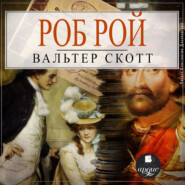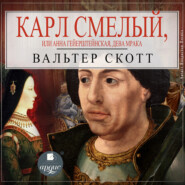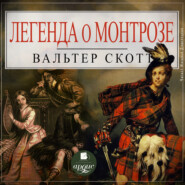По всем вопросам обращайтесь на: info@litportal.ru
(©) 2003-2024.
✖
The Monastery
Настройки чтения
Размер шрифта
Высота строк
Поля
“Oh, no, no, no!” she reiterated, “do not say so – he is not dead – he is but in a swoon. I have lain as long in one myself – and then his voice would arouse me, when he spoke kindly, and said, Catherine, look up for my sake – And look up, Julian, for mine!” she said, addressing the senseless corpse; “I know you do but counterfeit to frighten me, but I am not frightened,” she added, with an hysterical attempt to laugh; and then instantly changing her tone, entreated him to “speak, were it but to curse my folly. Oh, the rudest word you ever said to me would now sound like the dearest you wasted on me before I gave you all. Lift him up,” she said, “lift him up, for God’s sake! – have you no compassion? He promised to wed me if I bore him a boy, and this child is so like to its father! – How shall he keep his word, if you do not help me to awaken him? – Christie of the Clinthill, Rowley, Hutcheon! ye were constant at his feast, but ye fled from him at the fray, false villains as ye are!”
“Not I, by Heaven!” said a dying man, who made some shift to raise himself on his elbow, and discovered to Halbert the well-known features of Christie; “I fled not a foot, and a man can but fight while his breath lasts – mine is going fast. – So, youngster,” said he, looking at Glendinning, and seeing his military dress, “thou hast ta’en the basnet at last? it is a better cap to live in than die in. I would chance had sent thy brother here instead – there was good in him – but thou art as wild, and wilt soon be as wicked as myself.”
“God forbid!” said Halbert, hastily.
“Marry, and amen, with all my heart,” said the wounded man, “there will be company enow without thee where I am going. But God be praised I had no hand in that wickedness,” said he, looking to poor Catherine; and with some exclamation in his mouth, that sounded betwixt a prayer and a curse, the soul of Christie of the Clinthill took wing to the last account.
Deeply wrapt in the painful interest which these shocking events had excited, Glendinning forgot for a moment his own situation and duties, and was first recalled to them by a trampling of horse, and the cry of Saint George for England, which the English soldiers still continued to use. His handful of men, for most of the stragglers had waited for Murray’s coming up, remained on horseback, holding their lances upright, having no command either to submit or resist.
“There stands our Captain,” said one of them, as a strong party of English came up, the vanguard of Foster’s troop.
“Your Captain! with his sword sheathed, and on foot in the presence of his enemy? a raw soldier, I warrant him,” said the English leader. “So! ho! young man, is your dream out, and will you now answer me if you will fight or fly?”
“Neither,” answered Halbert Glendinning, with great tranquillity.
“Then throw down thy sword and yield thee,” answered the Englishman.
“Not till I can help myself no otherwise,” said Halbert, with the same moderation of tone and manner.
“Art thou for thine own hand, friend, or to whom dost thou owe service?” demanded the English Captain.
“To the noble Earl of Murray.”
“Then thou servest,” said the Southron, “the most disloyal nobleman who breathes – false both to England and Scotland.”
“Thou liest,” said Glendinning, regardless of all consequences.
“Ha! art thou so hot how, and wert so cold but a minute since? I lie, do I? Wilt thou do battle with me on that quarrel?”
“With one to one – one to two – or two to five, as you list,” said Halbert Glendinning; “grant me but a fair field.”
“That thou shalt have. – Stand back, my mates,” said the brave Englishman. “If I fall, give him fair play, and let him go off free with his people.”
“Long life to the noble Captain!” cried the soldiers, as impatient to see the duel, as if it had been a bull-baiting.
“He will have a short life of it, though,” said the sergeant, “if he, an old man of sixty, is to fight, for any reason, or for no reason, with every man he meets, and especially the young fellows he might be father to. – And here comes the Warden besides to see the sword-play.”
In fact, Sir John Foster came up with a considerable body of his horsemen, just as his Captain, whose age rendered him unequal to the combat with so strong and active a youth as Glendinning, was deprived of his sword.
“Take it up for shame, old Stawarth Bolton,” said the English Warden; “and thou, young man, tell me who and what thou art?”
“A follower of the Earl of Murray, who bore his will to your honour,” answered Glendinning, – “but here he comes to say it himself; I see the van of his horsemen come over the hills.”
“Get into order, my masters,” said Sir John Foster to his followers; “you that have broken your spears, draw your swords. We are something unprovided for a second field, but if yonder dark cloud on the hill edge bring us foul weather, we must bear as bravely as our broken cloaks will bide it. Meanwhile, Stawarth, we have got the deer we have hunted for – here is Piercie Shafton hard and fast betwixt two troopers.”
“Who, that lad?” said Bolton; “he is no more Piercie Shafton than I am. He hath his gay cloak indeed – but Piercie Shafton is a round dozen of years older than that slip of roguery. I have known him since he was thus high. Did you never see him in the tilt-yard or in the presence?”
“To the devil with such vanities!” said Sir John Foster; “when had I leisure for them or any thing else? During my whole life has she kept me to this hangman’s office, chasing thieves one day and traitors another, in daily fear of my life; the lance never hung up in the hall, the foot never out of the stirrup, the saddles never off my nags’ backs; and now, because I have been mistaken in the person of a man I never saw, I warrant me, the next letters from the Privy Council will rate me as I were a dog – a man were better dead than thus slaved and harassed.”
A trumpet interrupted Foster’s complaints, and a Scottish pursuivant who attended, declared “that the noble Earl of Murray desired, in all honour and safety, a personal conference with Sir John Foster, midway between their parties, with six of company in each, and ten free minutes to come and go.”
“And now,” said the Englishman, “comes another plague. I must go speak with yonder false Scot, and he knows how to frame his devices, to cast dust in the eyes of a plain man, as well as ever a knave in the north. I am no match for him in words, and for hard blows we are but too ill provided. – Pursuivant, we grant the conference – and you, Sir Swordsman,” (speaking to young Glendinning,) “draw off with your troopers to your own party – march – attend your Earl’s trumpet. – Stawarth Bolton, put our troop in order, and be ready to move forward at the wagging of a finger. – Get you gone to your own friends, I tell you, Sir Squire, and loiter not here.”
Notwithstanding this peremptory order, Halbert Glendinning could not help stopping to cast a look upon the unfortunate Catherine, who lay insensible of the danger and of the trampling of so many horses around her, insensible, as the second glance assured him, of all and forever. Glendinning almost rejoiced when he saw that the last misery of life was over, and that the hoofs of the war-horses, amongst which he was compelled to leave her, could only injure and deface a senseless corpse. He caught the infant from her arms, half ashamed of the shout of laughter which rose on all sides, at seeing an armed man in such a situation assume such an unwonted and inconvenient burden.
“Shoulder your infant!” cried a harquebusier.
“Port your infant!” said a pikeman.
“Peace, ye brutes,” said Stawarth Bolton, “and respect humanity in others if you have none yourselves. I pardon the lad having done some discredit to my gray hairs, when I see him take care of that helpless creature, which ye would have trampled upon as if ye had been littered of bitch-wolves, not born of women.”
While this passed, the leaders on either side met in the neutral space betwixt the forces of either, and the Earl accosted the English Warden:
“Is this fair or honest usage, Sir John, or for whom do you hold the Earl of Morton and myself, that you ride in Scotland with arrayed banner, fight, slay, and make prisoners at your own pleasure? Is it well done, think you, to spoil our land and shed our blood, after the many proofs we have given to your mistress of our devotion due to her will, saving always the allegiance due to our own sovereign?”
“My Lord of Murray,” answered Foster, “all the world knows you to be a man of quick ingine and deep wisdom, and these several weeks you have held me in hand with promising to arrest my sovereign mistress’s rebel, this Piercie Shafton of Wilverton, and you have never kept your word, alleging turmoils in the west, and I wot not what other causes of hinderance. Now, since he has had the insolence to return hither, and live openly within ten miles of England, I could no longer, in plain duty to my mistress and queen, tarry upon your successive delays, and therefore I have used her force to take her rebel, by the strong hand, wherever I can find him.”
“And is Piercie Shafton in your hands, then?” said the Earl of Murray. “Be aware that I may not, without my own great shame, suffer you to remove him hence without doing battle.”
“Will you, Lord Earl, after all the advantages you have received at the hands of the Queen of England, do battle in the cause of her rebel?” said Sir John Foster.
“Not so, Sir John,” answered the Earl, “but I will fight to the death in defence of the liberties of our free kingdom of Scotland.”
“By my faith,” said Sir John Foster, “I am well content – my sword is not blunted with all it has done yet this day.”
“By my honour, Sir John,” said Sir George Heron of Chipchase, “there is but little reason we should fight these Scottish Lords e’en now, for I hold opinion with old Stawarth Bolton, and believe yonder prisoner to be no more Piercie Shafton than he is the Earl of Northumberland; and you were but ill advised to break the peace betwixt the countries for a prisoner of less consequence than that gay mischief-maker.”
“Sir George,” replied Foster, “I have often heard you herons are afraid of hawks – Nay, lay not hand on sword, man – I did but jest; and for this prisoner, let him be brought up hither, that we may see who or what he is – always under assurance, my Lords,” he continued, addressing the Scots.
“Upon our word and honour,” said Morton, “we will offer no violence.”
The laugh turned against Sir John Foster considerably, when the prisoner, being brought up, proved not only a different person from Sir Piercie Shafton, but a female in man’s attire.
“Pluck the mantle from the quean’s face, and cast her to the horse-boys,” said Foster; “she has kept such company ere now, I warrant.”
Even Murray was moved to laughter, no common thing with him, at the disappointment of the English Warden; but he would not permit any violence to be offered to the fair Molinara, who had thus a second time rescued Sir Piercie Shafton at her own personal risk.
“You have already done more mischief than you can well answer,” said the Earl to the English Warden, “and it were dishonour to me should I permit you to harm a hair of this young woman’s head.”
“My lord,” said Morton, “if Sir John will ride apart with me but for one moment, I will show him such reasons as shall make him content to depart, and to refer this unhappy day’s work to the judgment of the Commissioners nominated to try offences on the Border.”
He then led Sir John Foster aside, and spoke to him in this manner: – “Sir John Foster, I much marvel that a man who knows your Queen Elizabeth as you do, should not know that, if you hope any thing from her, it must be for doing her useful service, not for involving her in quarrels with her neighbours without any advantage. Sir Knight, I will speak frankly what I know to be true. Had you seized the true Piercie Shafton by this ill-advised inroad; and had your deed threatened, as most likely it might, a breach betwixt the countries, your politic princess and her politic council would rather have disgraced Sir John Foster than entered into war in his behalf. But now that you have stricken short of your aim, you may rely on it you will have little thanks for carrying the matter farther. I will work thus far on the Earl of Murray, that he will undertake to dismiss Sir Piercie Shafton from the realm of Scotland. – Be well advised, and let the matter now pass off – you will gain nothing by farther violence, for if we fight, you as the fewer and the weaker through your former action, will needs have the worse.”
Sir John Foster listened with his head declining on his breast-plate.
“It is a cursed chance,” he said, “and I shall have little thanks for my day’s work.”
He then rode up to Murray, and said, that, in deference to his Lordship’s presence and that of my Lord of Morton, he had come to the resolution of withdrawing himself, with his power, without farther proceedings.

















